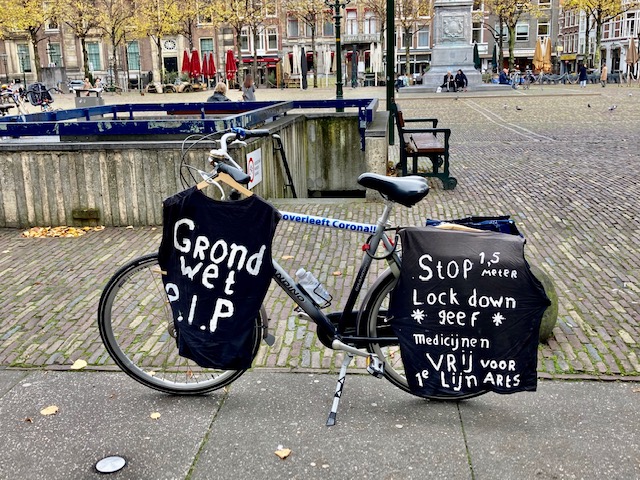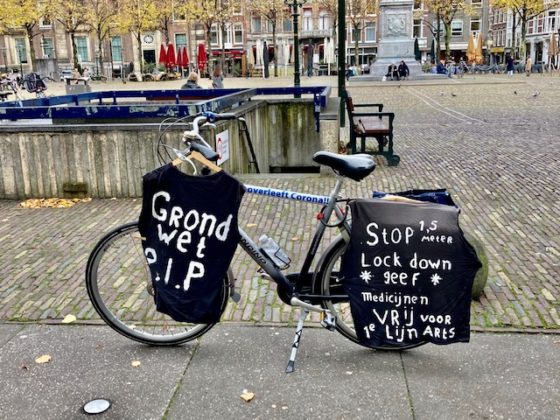Coronavirus conspiracies boom on Facebook, snapshot report shows


A new report by counter-extremism think tank Institute for Strategic Dialogue suggests there has been a 63% increase in the number of Dutch coronavirus misinformation communities on Facebook in the past six months.
Researcher Ciaran O’Connor examined the activity of 75 Dutch FB groups and 53 FB pages that typically host and post COVID-19 misinformation and conspiracies throughout April.
He found that there are now over 789,400 Facebook users that like these pages or are members of these groups, compared to 484,100 users on 31 October 2020.
‘This research is just a snapshot report only looking at one month and primarily at misinformation communities on Facebook’ O’Connor told DutchNews.nl.
‘Even in this short analysis, notable cases of misleading Covid content were found posted first on Twitter/Bitchute/Telegram and then seeded among large communities on Facebook where they achieved a scale that other platforms can’t provide.’
During the first months of 2021, anti-lockdown and anti-curfew groups and individuals in the Netherlands resorted to extremist, violence and illegal acts – such as arson attacks on testing centres, O’Connor points out.
And recently, the AIVD security service said anti-lockdown protests are becoming a breeding ground for extremism.
In particular, right-wing extremist groups began ‘emerging from the shadows’ and going public, presenting their ideas as respectable. These groups, the AIVD said, are gradually gaining a foothold in public protests.
Challenge
Tracking and combating COVID-19 misinformation is a challenge with many sides that requires effective partnerships from governments, media, civil society groups and researchers in the Netherlands and beyond, O’Connor said. ‘All signs suggests extremists are changing and using Covid frustrations as a catalyst for their own agendas.’
On Thursday, current affairs show Pointer said a group of Dutch coronavirus-sceptic activists have been coordinating the dissemination of fake and misleading information about Covid-19 since February via the Telegram messaging service.
The group, calling itself the Digitale Leger (digital army) urged supporters to create fake social media accounts to spread the disinformation it provided them with. It also encouraged them to harass regional health centres, politicians and high profile doctors both online and offline, Pointer said.
Thank you for donating to DutchNews.nl.
We could not provide the Dutch News service, and keep it free of charge, without the generous support of our readers. Your donations allow us to report on issues you tell us matter, and provide you with a summary of the most important Dutch news each day.
Make a donation